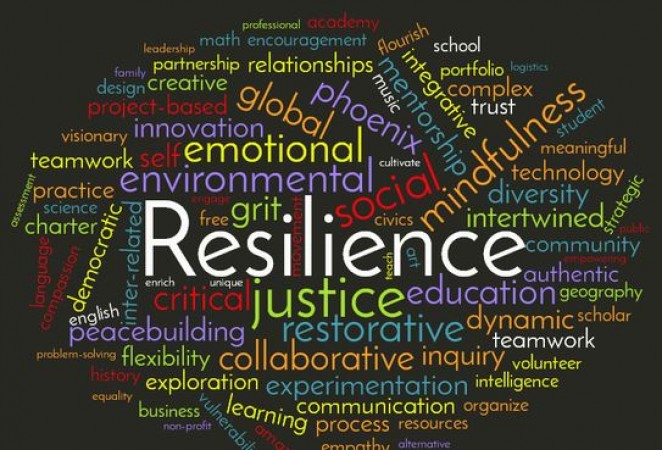
Introduction
Resilience is a psychological trait that allows individuals to adapt and bounce back from challenging or traumatic experiences. It involves the ability to maintain mental and emotional well-being in the face of adversity. While some people naturally possess higher levels of resilience, it is a skill that can be developed and strengthened through various strategies. In this article, we will explore the psychology of resilience and provide actionable strategies for building it.
Understanding Resilience
Defining Resilience
Resilience refers to the ability to adapt, recover, and thrive in the face of adversity. It is not about avoiding difficult situations but rather about navigating through them with strength and determination. Resilient individuals have the capacity to bounce back from setbacks, learn from failures, and continue moving forward.
The Importance of Resilience
Resilience plays a crucial role in our overall well-being and mental health. It helps us cope with stress, overcome challenges, and maintain a positive outlook on life. By cultivating resilience, individuals can effectively manage adversity, reduce the risk of mental health issues, and enhance their overall quality of life.
Factors Influencing Resilience
Genetic Factors
Research suggests that genetics play a role in determining an individual's resilience. Some people may be genetically predisposed to handle stress better or recover more quickly from traumatic events. However, it is important to note that genetic factors are just one piece of the resilience puzzle, and environmental factors and personal experiences also significantly contribute to its development.
Childhood Experiences
Childhood experiences and upbringing play a significant role in shaping resilience. Children who grow up in supportive environments, with caring and nurturing parents or caregivers, tend to develop stronger resilience. Positive childhood experiences, such as secure attachments and consistent emotional support, provide a foundation for building resilience later in life.
Social Support
Having a strong support network is crucial for building resilience. Social connections and relationships provide emotional support, practical assistance, and a sense of belonging. Interacting with others who offer understanding, empathy, and encouragement can help individuals navigate challenging situations and recover more effectively.
Building Resilience
Developing a Growth Mindset
A growth mindset is a belief that challenges and setbacks are opportunities for growth and learning. Embracing a growth mindset allows individuals to view failures as temporary setbacks rather than permanent obstacles. By reframing challenges as learning experiences, individuals can develop resilience and find motivation to persevere.
Cultivating Self-Compassion
Self-compassion involves treating oneself with kindness and understanding, especially during difficult times. Resilient individuals practice self-compassion by acknowledging their emotions, validating their experiences, and offering themselves support and encouragement. This self-care practice enhances resilience by promoting a positive self-image and fostering emotional well-being.
Nurturing Supportive Relationships
Building and maintaining supportive relationships is essential for resilience. Surrounding oneself with people who offer encouragement, empathy, and practical assistance creates a sense of belonging and strengthens emotional well-being. Engaging in meaningful connections and fostering healthy relationships can provide a valuable support system during challenging times.
Practicing Emotional Regulation
Emotional regulation refers to the ability to manage and control emotions effectively. Resilient individuals develop healthy coping mechanisms to regulate their emotions during times of stress or adversity. Strategies such as deep breathing exercises, mindfulness practices, and engaging in hobbies or activities that bring joy can help regulate emotions and promote resilience.
Setting Realistic Goals
Setting realistic and achievable goals is an important aspect of building resilience. Resilient individuals break down larger goals into smaller, manageable tasks, allowing for a sense of progress and accomplishment. By setting realistic expectations and focusing on one step at a time, individuals can maintain motivation and build resilience throughout their journey.
Overcoming Obstacles to Resilience
Challenging Negative Thought Patterns
Negative thought patterns can hinder resilience and contribute to a downward spiral of negative emotions. Resilient individuals practice cognitive reframing, which involves challenging negative thoughts and replacing them with more positive and empowering ones. By reframing negative self-talk, individuals can cultivate a more resilient mindset.
Seeking Professional Help
Sometimes, building resilience requires professional support. Seeking help from therapists, counselors, or coaches can provide individuals with guidance and tools to develop resilience. Professional interventions such as cognitive-behavioral therapy (CBT) or trauma-focused therapy can be effective in building resilience and addressing underlying issues.
Embracing Change and Uncertainty
Resilience involves adapting to change and embracing uncertainty. Rather than resisting or fearing change, resilient individuals see it as an opportunity for growth and personal development. Embracing change requires flexibility, open-mindedness, and a willingness to step outside of one's comfort zone.
Learning from Failure
Failure is a natural part of life, and resilient individuals understand that it is an opportunity for growth. Instead of dwelling on past failures, they reflect on the lessons learned and use them as stepping stones for future success. By embracing failure as a valuable learning experience, individuals can build resilience and become more adaptable to future challenges.
Conclusion
Resilience is a valuable psychological trait that can be developed and strengthened through various strategies. By understanding the psychology of resilience and implementing the strategies discussed in this article, individuals can navigate through adversity with greater ease, maintain mental well-being, and bounce back stronger. Building resilience is an ongoing process, and with practice and dedication, anyone can cultivate this empowering trait.
Celebrating National Sugar Cookie Day: A Delightful Treat for All
Unveiling the Hidden Gems: Exploring the Best Street Shopping in Mumbai
Celebrating the Legacy of Jyoti Basu: A Visionary Leader